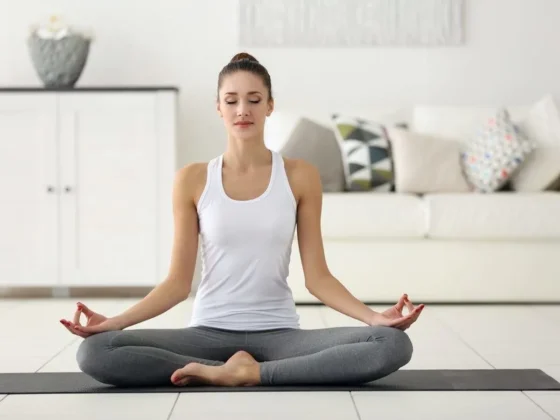The more you wash your hands, the less likely you are to get infected. How not to get infected advice has long list of do’s and don’ts. Wash you hands with soap for at least 20 seconds, don’t touch your face, don’t touch your nose and eyes. Maintain six feet of distance.
However, very few experts have bothered to address specific concerns of people who suffer from mild, moderate or severe form of obsessive compulsive disorders (OCDs).
Even before the Covid-19 outbreak, fears of contracting unknown virus used to force people with OCDs do something unusual. For them, the current crisis is particularly difficult because they don’t know which behaviors are “reasonable” and which reflect excess anxiety.
- People with OCD want to check news constantly to see how the pandemic is developing. But, even normal people are doing the same.
- Compulsive cleaning rituals can be seen even among the people who never have had even a moderte OCDs.
- However, because of the COVID-19 crisis, it’s important that people with OCD give themselves permission to follow current guidelines being recommended by authorities such as the World Health Organization and the Centers for Disease Control and other importnt authorities.
- Even normal people are worried that they may bring the virus home from the grocery store.
However, we must learn to differentiate what normal people are doing right now, and what people with OCDs always do. It is quite normal to go straight to the bathroom and wash your hands for 20 seconds with soap and water.
But after washing your hands thoroughly, doing the same thing five minutes later should be called repetitious, unproductive thoughts that cause distress and doubt. This is what OCD is.
Let us understand what OCD is.
What is OCD?
According to the US-based National Institute of Mental Health, Obsessive-Compulsive Disorder (OCD) is a common, chronic, and long-lasting disorder in which a person has uncontrollable, reoccurring thoughts (obsessions) and/or behaviors (compulsions) that he or she feels the urge to repeat over and over.
Signs and Symptoms
People with OCD may have symptoms of obsessions, compulsions, or both. These symptoms can interfere with all aspects of life, such as work, school, and personal relationships.
Obsessions are repeated thoughts, urges, or mental images that cause anxiety. Common symptoms include:
- Fear of germs or contamination
- Unwanted forbidden or taboo thoughts involving sex, religion, or harm
- Aggressive thoughts towards others or self
- Having things symmetrical or in a perfect order
- Compulsions are repetitive behaviors that a person with OCD feels the urge to do in response to an obsessive thought.
Common compulsions include:
- Excessive cleaning and/or handwashing
- Ordering and arranging things in a particular, precise way
- Repeatedly checking on things, such as repeatedly checking to see if the door is locked or that the oven is off
- Compulsive counting
Not all rituals or habits are compulsions
Everyone double checks things sometimes. But a person with OCD generally:
- Can’t control his or her thoughts or behaviors, even when those thoughts or behaviors are recognized as excessive
- Spends at least 1 hour a day on these thoughts or behaviors
- Doesn’t get pleasure when performing the behaviors or rituals, but may feel brief relief from the anxiety the thoughts cause
- Experiences significant problems in their daily life due to these thoughts or behaviors
New Guidelines For Clinical Management Of OCDs During COVID-19
In response to the emerging crisis and growing calls from patients and clinicians for guidance, a working group of clinical experts from the International College of Obsessive Compulsive Spectrum Disorders (ICOCS) and the Obsessive-Compulsive and Related Disorders Research Network of the European College of Neuropsychopharmacology (OCRN) produced a consensus statement with the aim of delivering pragmatic guidance at the earliest opportunity to clinicians for managing this complex challenge.
The advice is largely based on empirical evidence, including the clinical experience gained from working in specialised OCD treatment-services before and during the pandemic.
The guidance to clinicians is as follows:
Take a compassionate calming approach
Use telemedicine including telephone or video calls. Be aware that the pandemic is affecting countries with different cultural environments and different available resources to deal with it. For example, in regions of Latin America and in Africa lack of water and access to the Internet, and poverty levels greater than 50% make it hard to stay at home, since there is no monetary support from the government to aid survival.
Careful history taking
Confirm the diagnosis of OCD, paying particular attention to other obsessive-compulsive and related disorders (OCRDs) including hypochondriasis (recently endorsed as an OCRD in the World Health Organization (WHO) ICD-11), as these disorders are likely to be most affected by COVID-19.
Clarify the extent to which the current symptoms represent a rational or exaggerated reaction to recent highly stressful events, or a worsening of obsessive-compulsive symptomatology. Establish the level of insight into the irrationality or excessiveness of the symptoms, and the presence or absence of tics, as these may influence the care plan.
Read More.
COVID-19 vs. Your OCD Symptoms
International OCD Foundation has published some specific information based on subtypes of OCDs.
If you Struggle with Contamination Fears:
- Give yourself permission to set a basic safety plan based on the recommendations of trusted health organizations, and do not add to it.
- Disinfect surfaces once a day. Focus on the surfaces in your home that are frequently touched, and think about whether this is truly needed (for example, if you stayed home all day and had no visitors, do you really need to disinfect that doorknob?). This process shouldn’t take you more than a few minutes per day.
- Wash your hands with soap and water for 20 seconds after being outside or in public, before eating, after going to the bathroom, and after you’ve coughed/sneezed/blown your nose. If soap and water are not available to you, use hand sanitizer that contains at least 60% alcohol.
- If you want to do more than this, pick a person to help you figure out what might be a reasonable and rational safety measure to take.
If you struggle with perfectionism
Remind yourself that no one can protect themselves “perfectly” from COVID-19, and no one expects you to. Times like these call for using your common sense instead of going to perfectionistic extremes.
Remember that trusted health organizations aren’t thinking about people with OCD and/or perfectionism when they set public health guidelines, and thus it might be helpful to talk to a trusted friend, family member, and/or your therapist to help figure out what “common sense” might mean. Your therapist can be especially helpful in figuring out how to apply these guidelines in a way that meets health standards without sending you deeper into your OCD.
If you struggle with thoughts of harming others
Be mindful that your OCD may take advantage of COVID-19 fears by telling you that you might have infected someone or that you are going to infect someone in the future, whether accidentally or on purpose.
If you’re noticing these intrusive thoughts, or that you’re doing compulsions related to these thoughts, check in with your therapist and let them know how your symptoms might have changed. They can work with you to come up with new exposures and/or homework activities to help contain them.
Image: Unspalsh











